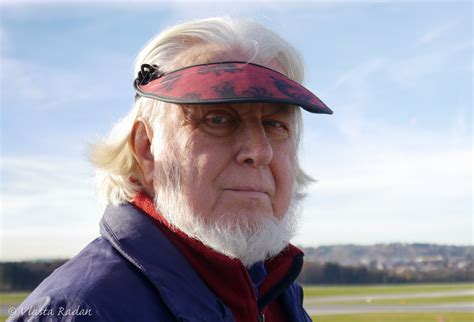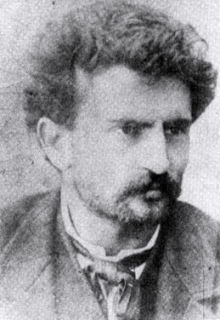A Quote by Eric Hobsbawm
Impotence therefore faces both those who believe in what amounts to a pure, stateless, market capitalism, a sort of international bourgeois anarchism, and those who believe in a planned socialism uncontaminated by private profit-seeking. Both are bankrupt. The future, like the present and the past, belongs to mixed economies in which public and private are braided together in one way or another. But how? That is the problem for everybody today, but especially for people on the left.
Quote Topics
Related Quotes
We crave a world of either/or, but the Dream says, Both/and. We build a wall between our social persona and our inner selves; the Dream bids us, Demolish it. We wish to believe we're separate from one another, but the Dream insists, We are in this together. We are pleased to believe Time is a one-way river from past to present to future, yet the Dream reveals, All three times flow into one. We wish to seek pure virtue and avoid all stain, but the Dream avers, The dark and the light are braided and bound.
For the corporation executives, the military metaphysic often coincides with their interest in a stable and planned flow of profit; it enables them to have their risk underwritten by public money; it enables them reasonably to expect that they can exploit for private profit now and later, the risky research developments paid for by public money. It is, in brief, a mask of the subsidized capitalism from which they extract profit and upon which their power is based.
Capitalism and socialism are two distinct patterns of social organization. Private control of the means of production and public control are contradictory notions and not merely contrary notions. There is no such thing as a mixed economy, a system that would stand midway between capitalism and socialism.
I believe the American people are more concerned with a man's views and abilities than with the church to which he belongs. I believe the founding fathers meant it when they provided in Article VI of the Constitution that there should be no religious test for public office. And I believe that the American people mean to adhere to those principles today.
The goal of socialism is a fairer allocation of economic resources, which its advocates often claim will also be a less wasteful one. Socialism is about who gets the goods and how. Socialism objects to markets because markets allocate resources in ways socialists believe to be unfair on both counts: both the who and the how.
Markets are born free, yet no sooner are they born than some would-be emperor is forging chains. Paradoxically, it sometimes happens that the only way to preserve freedom is through judicious controls on the exercise of private power. If we believe in liberty, it must be freedom from both private and public coercion.
Socialism and Communism both demand a degree of joint effort and administration which would beget more regulation than is wholly consistent with ideal Anarchism; Individualism and Mutualism, resting upon property, involve a development of the private policeman not at all compatible with my notion of freedom.
The difference between [socialism and fascism] is superficial and purely formal, but it is significant psychologically: it brings the authoritarian nature of a planned economy crudely into the open. The main characteristic of socialism (and of communism) is public ownership of the means of production, and, therefore, the abolition of private property. The right to property is the right of use and disposal. Under fascism, men retain the semblance or pretense of private property, but the government holds total power over its use and disposal.
Anarchism is the abolition of exploitation and oppression of man by man, that is, the abolition of private property and government; Anarchism is the destruction of misery, of superstitions, of hatred. Therefore, every blow given to the institutions of private property and to the government, every exaltation of the conscience of man, every disruption of the present conditions, every lie unmasked, every part of human activity taken away from the control of the authorities, every augmentation of the spirit of solidarity and initiative, is a step towards Anarchism.
Just as members of American teachers unions often send their own children to private schools, so unionized workers at government-run hospitals in Britain have insurance that allows them to go to private hospitals. In both cases, those on the inside realize how bad these institutions are, regardless of what they say to those on the outside.








































